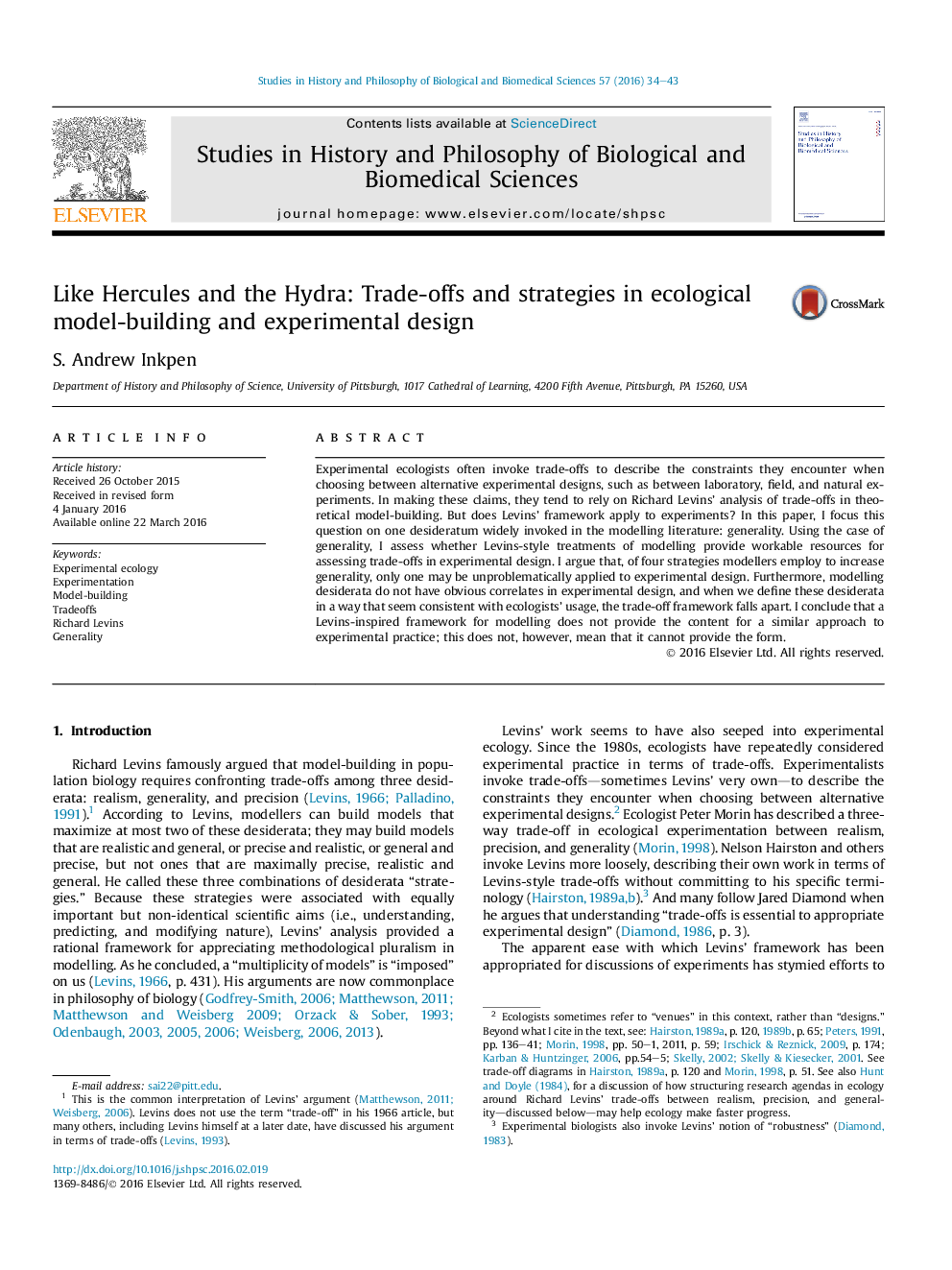| Article ID | Journal | Published Year | Pages | File Type |
|---|---|---|---|---|
| 7552226 | Studies in History and Philosophy of Science Part C: Studies in History and Philosophy of Biological and Biomedical Sciences | 2016 | 10 Pages |
Abstract
Experimental ecologists often invoke trade-offs to describe the constraints they encounter when choosing between alternative experimental designs, such as between laboratory, field, and natural experiments. In making these claims, they tend to rely on Richard Levins' analysis of trade-offs in theoretical model-building. But does Levins' framework apply to experiments? In this paper, I focus this question on one desideratum widely invoked in the modelling literature: generality. Using the case of generality, I assess whether Levins-style treatments of modelling provide workable resources for assessing trade-offs in experimental design. I argue that, of four strategies modellers employ to increase generality, only one may be unproblematically applied to experimental design. Furthermore, modelling desiderata do not have obvious correlates in experimental design, and when we define these desiderata in a way that seem consistent with ecologists' usage, the trade-off framework falls apart. I conclude that a Levins-inspired framework for modelling does not provide the content for a similar approach to experimental practice; this does not, however, mean that it cannot provide the form.
Related Topics
Life Sciences
Agricultural and Biological Sciences
Agricultural and Biological Sciences (General)
Authors
S. Andrew Inkpen,
